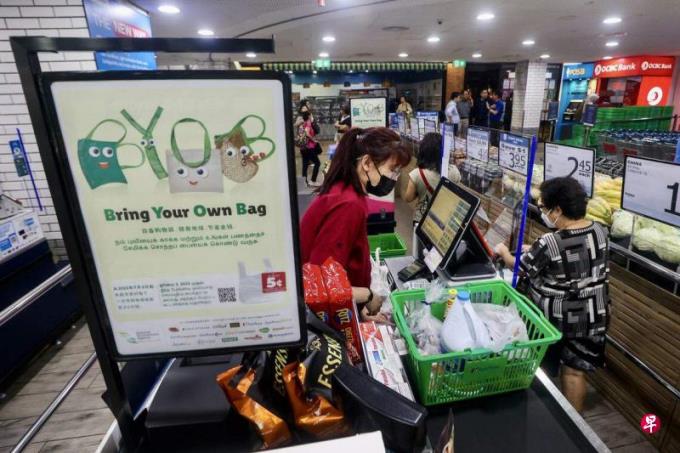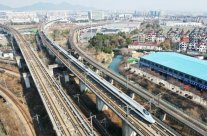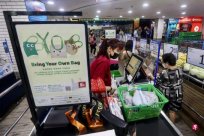
Recently, colleagues in the press room have been tracking the reasons why the refund system of Singapore beverage bottles and cans is delayed.Coca -Cola's leading beverage company consortium.
Many governments have to face a period of adaptation between consumers and merchants when they are promoting a pollution policy to prevent plastic pollution policies. Sometimes pain is inevitable.
In recent years, whether the South Korean government stipulates that consumers must pay margin when using disposable cups in cafes and fast food restaurants, or large Singapore supermarkets began to levy plastic bags, or just implemented in Hong Kong last month in Hong KongThe tableware limited plastic order, facing the criticism and doubts of the public at the time of implementation.Many media reports will also focus on the generals of the general people's dissatisfaction and unaccustomed to new measures.
On April 22, World Earth Day, the 2023 product environmental protection responsibility (revision) regulations implemented in Hong Kong's first stage of the first phase of Hong Kong caused a big rebound than expected.As the Hong Kong Government completely banned the use of plastic tableware in the restaurant, it did not formulate too many supporting solutions, such as strengthening publicity measures to encourage citizens to prepare tableware, or assist merchants to understand which non -plastic tableware is more suitable for recycling and set up borrowing tableware systems.As a result, the wooden or paper tableware used by many restaurants has failed to change the culture of the tableware, and the policy has been criticized.Not only that, a lot of netizens also uploaded some wooden spoons that could not get photos of soup and carton leaks on the social media platform, and took the opportunity to ridicule this policy.
These examples reflect that any plastic reduction policy must be successfully implemented, and it is not as simple as issuing a ban.
In addition, they also show that when we talk about the narrow thinking of the "Polluter Pays" principle, it is difficult to escape the narrow thinking of the pollutors and consumers directly.Public opinion always focuses on consumers' unwillingness to take responsibility, but often ignores many policies. It is the key to implement the inconvenience of consumers due to different political and commercial forces.Consumers do not pay for it, sometimes they may just kill the last straw of the camel.
However, as global plastic pollution problems are becoming more and more serious, 8 million tons of plastics flow into the ocean each year, which not only endangers marine creatures, but also endangers human health. Discussing around plastic reduction also adds more new levels.Among them, more and more environmental protection organizations, observers and media have begun to pay attention to some plastic manufacturers, petrochemical industries, beverage brands and other enterprise giants to control plastic -related public opinion.These giants may appear on the surface to support plastic reduction, but they secretly exerted their strength behind the scenes, intending to lobby to proclaim or refuse any plastic production, or bring additional cost agreements and policies to protect this important lifeline of plastic production.
As consumers, we have often believed that the "recyclable" labels on the product labeling on the supermarket shelf, but the data proves that only less than 10 % of the global plastic produced in the world is truly recycled.More and more surveys have also showed that as early as the 1970s, the plastic manufacturing and petrochemical industry knew that plastic cannot be recycled well, but tried to shape and maintain the myths and lies that can be improved through recycling technology and technological progress.However, it is angry that despite the disassembly of these companies, because they have the influence of politics and policies, lobbying work has not completely stopped.
For example, the world is currently coming to a historic moment to fight plastic pollution, that is, the heads of the country and the Minister of the Environment under the leadership of the United Nations are currently negotiating a plastic governance agreement that must be completed within this year, but the entire consultation process isHowever, it is constantly hindered by lobbying groups.According to statistics, the fourth round of negotiations just held in Ottawa, Canada at the end of April. The petrochemical industrial lobbying representatives attended by 196 people, which was more than one -third from the previous round of negotiations in Kenya Nairobi.There are many participating scientists, and some representatives also sit directly on the negotiating table.Coca -Cola, Pepsi, Unilever, Nestlé and other beverage manufacturers, that is, the world's largest plastic pollution, also continues to emphasize recycling and innovative technologies rather than plastic limitation, which is the key to solving the plastic crisis.
However, at the same time, many such large beverage brand betting resources promoted by plastic recycling technology have not seen effective results, and the media has further exposed these brands or cannot achieve their related commitments.In Asia, many environmental recycling companies that cooperate with these brands have recently mentioned that due to the geopolitical factors such as the Russian and Ukraine War, the prices of plastic after recycling have risen significantly, and the supply is also affected.However, because the beverage giant cares about the cost, it is required that the price of such regenerative plastics is not higher than the native plastic, and it is very difficult to solve the problem in a short period of time.
In Singapore, we often ignore the influence of these corporate giants.Recentwait.This measure was announced in 2020 that the relevant bill was approved in Congress in 2022. It was originally implemented in the middle of this year, but it was postponed until April next year.It is understood that the implementation of the system has been postponed this time, and the specific date is unclear.
Interestingly, when the National Environment Bureau of Singapore responded to the media inquiry, there was no taboo to take out the plan to delay again.A longer time than expected. "It also further revealed and confirmed that the operators who applied for planning to implement the license include Coca -Cola, as well as Pokka and FN beverage brands.This is believed to be the first time that the government has directly ordered the influence of beverage brands on policy.
As mentioned above, whether it is a beverage bottle and canal refund system or other plastic restriction plans, these measures that can improve the overall plastic recovery rate and solve plastic problems must be thoughtful. OtherwiseIt will not help resolve the plastic crisis in front of you.However, the disclosure and transparency of information, as well as the affected corporate consortium that is not too profitable to ensure that the consultation process is not excessive.If you want to eliminate obstacles on the road to cut plastic, you cannot ignore the originally invisible but increasing resistance of corporate giants.
The author is the deputy director of the editorial department of Eco-Business, a regional environmental media and consulting company.




